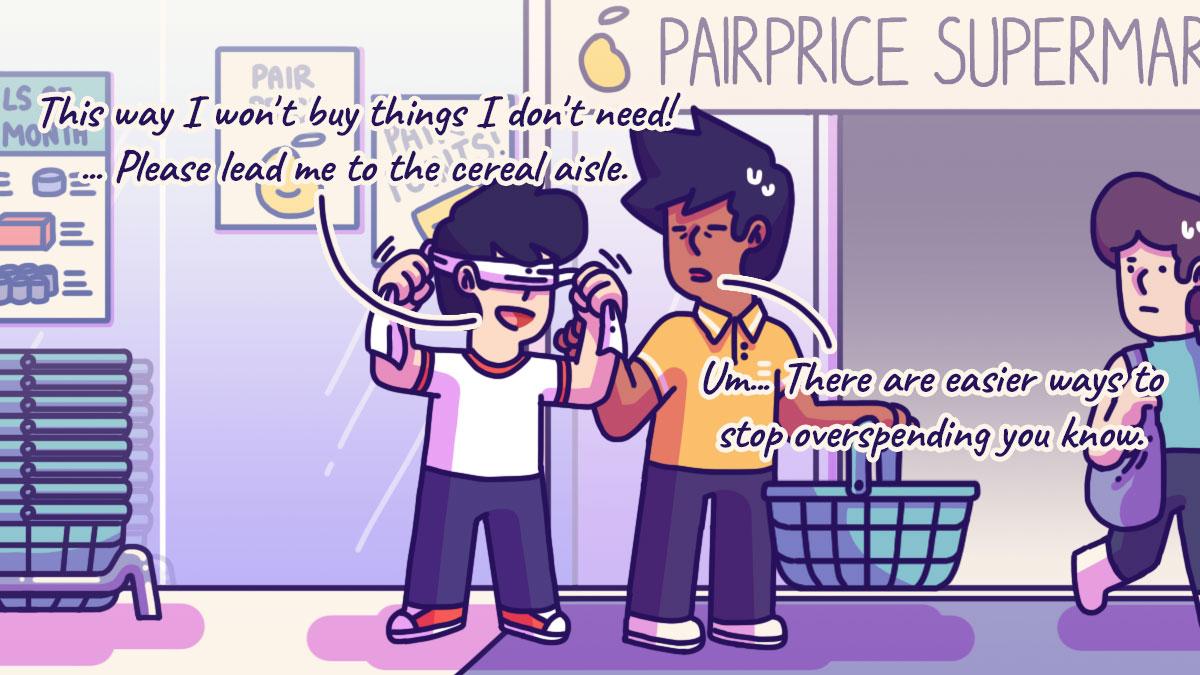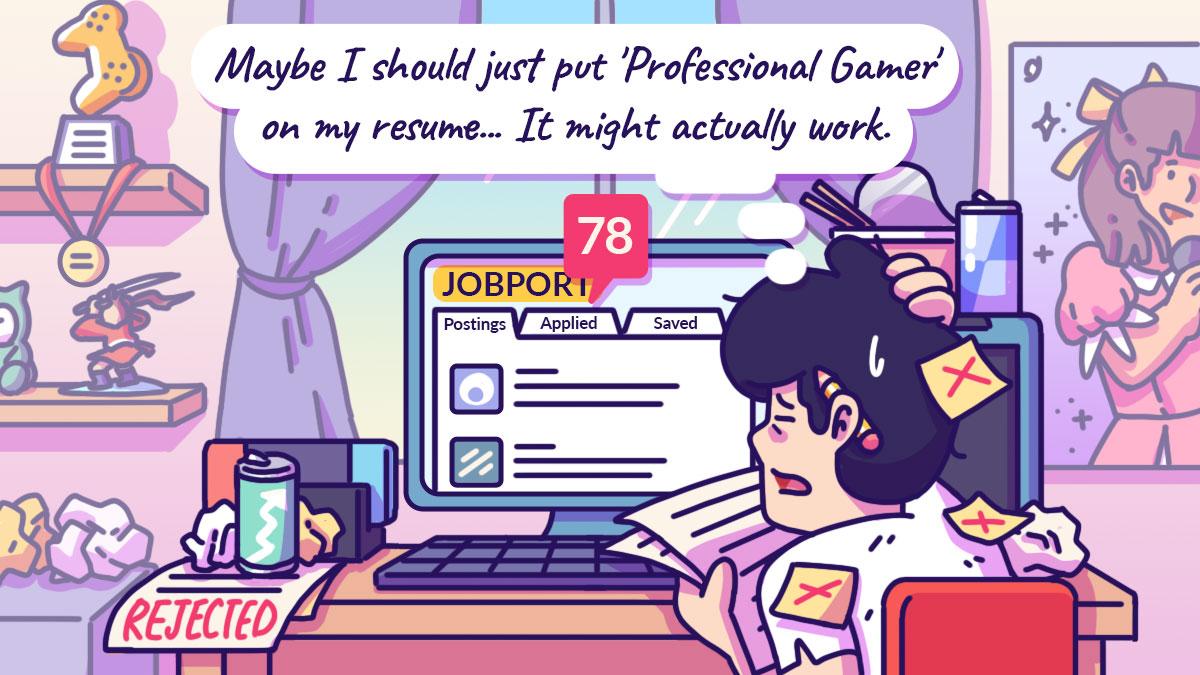Armed with a degree and a thesis-length CV, you are bright-eyed and energetic, raring for a chance to break into the industry – even willing to take a dirt-low salary to get your foot in the door.Move out of the way, old guard, it’s time for the next better player. You provide so much more value compared to higher-salaried baby boomers.So older workers are usually the first to go when the cost-cutting begins. According to the 2017 Labour Market Report, retrenched workers aged 50 and above rose from 32% in 2016 to 36%.It might be easy for us to think, “That’s not in my future, I know digital, I am
relevant.”
But can you stay that way once you’re pushing 40, getting easier to tire – yet juggling child-rearing and family finances?
Will you be safe from the next generation?
To understand the future you have to delve to the past, so I took the chance to speak to Clive, a 40-year old senior executive, who has been working in the telco industry for almost 20 years – and is thinking of switching jobs.
‘I didn’t think too much about my first job’
In his mid-twenties, fresh out of university (when degree-holders were less common), Clive was quickly hired by Starhub. During his stint, Clive worked in operations and processed orders, and made sure deliveries were made on time.
He had spent about 7 years at Starhub before moving on to Singtel. Today, he’s been with the big red telco for “about 8 years now.”
Back then,job loyalty was a huge thing,” he said. “So people tend to stay in the same job for many years.”
This might be alien to today’s young professionals, who stay in their jobs for a shorter amount of time, according to the
2018 Deloitte Millennial Survey, 43% of millennials plan to quit their jobs within two years, and less than 30% plan to stay beyond five.
At the time, Clive was more concerned about securing a “stable income” before all else. “I think it’s different for young people today, who want their jobs to really mean something to them, or play to their passions. That’s not the case for me, and it still isn’t.”
I asked him, then, if his approach to his career had changed over the years.
“To be honest,” he said, “not a lot has changed. I joined Starhub for a steady income, and I’m still trying to retain that. What’s changed now is that I just got married, and I’m preparing for a BTO flat, and a kid in the future. I’m also thinking of investing soon to prepare for retirement.
“So if I’m to switch jobs, the pay is a huge factor because of family.”
Striving hard to break into a new industry
As for the kind of company he’d prefer, Clive knows that startups probably aren’t for him at all. “It’s quite experimental in there, and though experience doesn’t matter, I think the pay will be lower,” he said.
“What about SMEs and MNCs?” I asked.
“Probably,” he replied, nodding. “What I’m looking for is something that will get me more money, even if I switch out of the telco industry.”
And yet, the transition out of a 20-year career is fraught with obstacles – especially at 40 years of age.
“It’s true that when you’ve been in the telco industry for so long, you might have to stay here forever,” he acknowledged. “The experience you have from working in telcos is only great when you’re applying for a job at another telco.”

He received a Long Service Award three years ago for his commitment to the company.
“To be honest, the job is monotonous, and there’s no room for promotion,” he reflected. “It’s been a long time with this company, and I’m interested in finding something a little more engaging – and with a higher pay.”
I asked Clive about his job-hunting efforts, especially since he is, at this point, much older than today’s pool of new and young professionals.
At age 40, would he still be a competitive job applicant?
On his strengths as an older worker, he said, “I do have quite a bit of job experience. I think you can’t compete with someone who has more experience than you, even if you have more qualifications.”
Yet he still has his fears, he admitted. “Employers do look to younger professionals instead of older people like myself because younger workers are more energetic, and employers can pay them less.
“But I think it’s still possible to find better jobs even now – I just have to stay relevant.”
To him, staying relevant meant keeping up with the times, and going for transferable skills that could bring him out of the telco industry.
In Singapore, there’s a constant effort ongoing for continuing education and training (CET) programmes, including SkillsFuture and the
Singapore Workforce Skills Qualifications (WSQ), both of which equip and teach older workers to become more flexible and competitive through key skills that companies want.
Yet despite bringing up using SkillsFuture, Clive acknowledged that with his requirements there still aren’t a lot of new career options available to him.
“It’s difficult because now the market is full of degree-holders and young people. Back when I was a uni graduate, there weren’t a lot of people with degrees, so having a university education actually meant something.”
A day after our meeting, Clive reflected to me over text message: “I think I would have done things differently if I had known the things I know now.
“I probably would have switched jobs much earlier instead of working for telcos all my life. I think things would have been easier if I had made the leap years ago.
 He received a Long Service Award three years ago for his commitment to the company.
“To be honest, the job is monotonous, and there’s no room for promotion,” he reflected. “It’s been a long time with this company, and I’m interested in finding something a little more engaging – and with a higher pay.”
I asked Clive about his job-hunting efforts, especially since he is, at this point, much older than today’s pool of new and young professionals.
At age 40, would he still be a competitive job applicant?
On his strengths as an older worker, he said, “I do have quite a bit of job experience. I think you can’t compete with someone who has more experience than you, even if you have more qualifications.”
Yet he still has his fears, he admitted. “Employers do look to younger professionals instead of older people like myself because younger workers are more energetic, and employers can pay them less.
“But I think it’s still possible to find better jobs even now – I just have to stay relevant.”
To him, staying relevant meant keeping up with the times, and going for transferable skills that could bring him out of the telco industry.
In Singapore, there’s a constant effort ongoing for continuing education and training (CET) programmes, including SkillsFuture and the Singapore Workforce Skills Qualifications (WSQ), both of which equip and teach older workers to become more flexible and competitive through key skills that companies want.
Yet despite bringing up using SkillsFuture, Clive acknowledged that with his requirements there still aren’t a lot of new career options available to him.
“It’s difficult because now the market is full of degree-holders and young people. Back when I was a uni graduate, there weren’t a lot of people with degrees, so having a university education actually meant something.”
A day after our meeting, Clive reflected to me over text message: “I think I would have done things differently if I had known the things I know now.
“I probably would have switched jobs much earlier instead of working for telcos all my life. I think things would have been easier if I had made the leap years ago.
He received a Long Service Award three years ago for his commitment to the company.
“To be honest, the job is monotonous, and there’s no room for promotion,” he reflected. “It’s been a long time with this company, and I’m interested in finding something a little more engaging – and with a higher pay.”
I asked Clive about his job-hunting efforts, especially since he is, at this point, much older than today’s pool of new and young professionals.
At age 40, would he still be a competitive job applicant?
On his strengths as an older worker, he said, “I do have quite a bit of job experience. I think you can’t compete with someone who has more experience than you, even if you have more qualifications.”
Yet he still has his fears, he admitted. “Employers do look to younger professionals instead of older people like myself because younger workers are more energetic, and employers can pay them less.
“But I think it’s still possible to find better jobs even now – I just have to stay relevant.”
To him, staying relevant meant keeping up with the times, and going for transferable skills that could bring him out of the telco industry.
In Singapore, there’s a constant effort ongoing for continuing education and training (CET) programmes, including SkillsFuture and the Singapore Workforce Skills Qualifications (WSQ), both of which equip and teach older workers to become more flexible and competitive through key skills that companies want.
Yet despite bringing up using SkillsFuture, Clive acknowledged that with his requirements there still aren’t a lot of new career options available to him.
“It’s difficult because now the market is full of degree-holders and young people. Back when I was a uni graduate, there weren’t a lot of people with degrees, so having a university education actually meant something.”
A day after our meeting, Clive reflected to me over text message: “I think I would have done things differently if I had known the things I know now.
“I probably would have switched jobs much earlier instead of working for telcos all my life. I think things would have been easier if I had made the leap years ago.










